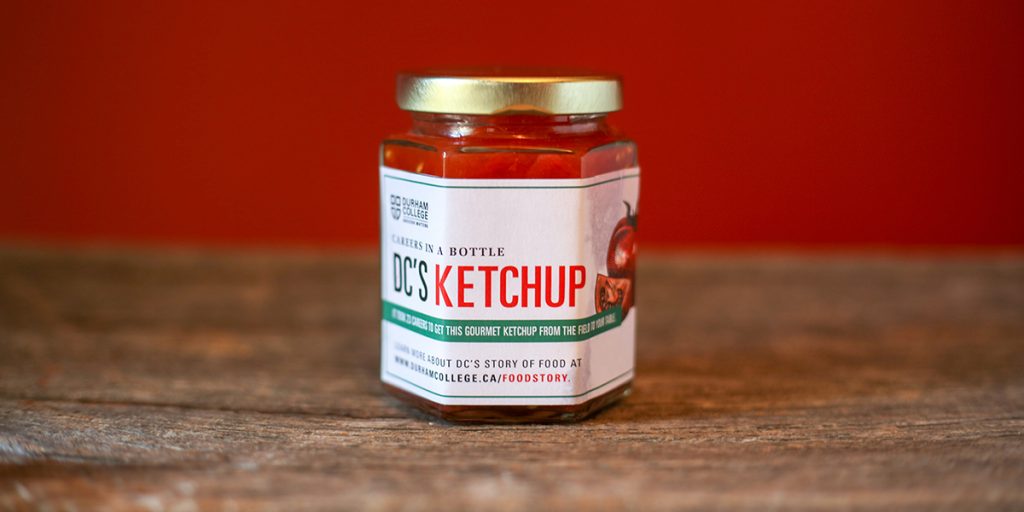“The number of roles are just endless”: How DC is preparing students for in-demand jobs in the food and beverage industry
The food and beverage industry is on a hiring spree and Durham College (DC) students are gaining the hands-on skills and experience employers are looking for.
Food Processing Skills Canada reports that roughly 300,000 people work in the industry and that number is expected to grow to 325,000 by 2030. However, with more than 65,000 people set to retire and existing vacancies, the industry needs to attract 142,000 workers in the next seven years, causing companies across the country to begin hiring.
“The number of roles are just endless,” said Wendy Smith, a food science and technology professor in DC’s Food and Farming program. “If you look on a job website like Indeed right now, there are so many positions for quality control technicians, quality assurance technicians, product development and production management positions, machine operators, and process technologists—it just goes on and on.”
On the horticulture side, potential jobs include farm supervisor, labour supervisor, jobs in agritourism and much more.
Smith explains numerous DC programs prepare students for food and beverage industry jobs including Culinary Management and Horticulture – Food and Farming but also programs like Biotechnology and the skilled trades.
“If you talk to the skilled trades people, millwrights machine operators, electricians, HVAC workers, and plumbers, they're all going to have roles in food manufacturing,” said Smith.
Kelly O’Brien, Associate Dean for the Faculty of Hospitality and Horticultural Science at DC says it’s important for prospective students to understand the large number of pathways in the food and beverage industry.
For example, a culinary graduate may not become a chef.
“We hired a new faculty member in the fall and he’s like I need three people now, stat, to work in food production and manufacturing and he was looking for culinary students,” she said.
Entrepreneurship is also a major pathway for students in the Food and Farming program with about 25 per cent launching an entrepreneurial endeavour.
Smith is a DC alumna and was part of the first graduating class of the Food and Drug Technology program. She went on to a career in research development and product development with companies like General Foods (now Kraft) and Nestle. She said when she speaks to people in her industry, they often say they fell into a career in food science. She believes there should be more awareness of the great career possibilities.
“My whole career has been in food science, and I'm really happy with the career. There have been so many different types of opportunities and I've been able to grow creatively and also in terms of management and leadership skills.”

Careers in a bottle
It can take up to 24 different careers to create DC ketchup including chefs, horticulturalists, food safety technicians, food product developers, sales and marketing and so much more! Explore DC’s Story of Food and imagine the possibilities.
